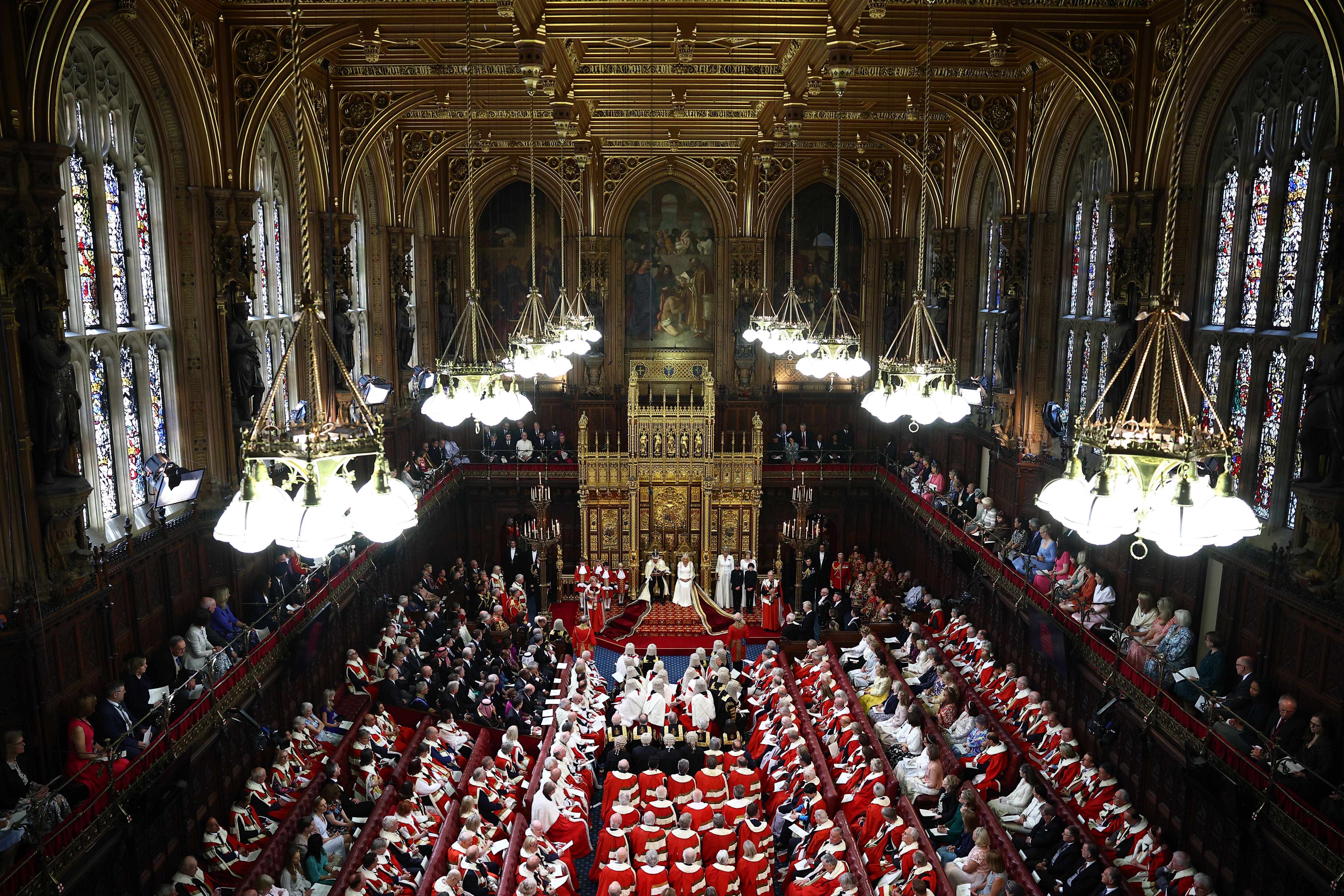Remaining hereditary peers to be kicked out of House of Lords within months
The government committed before the general election to abolish the right of hereditary peers to sit in the House of Lords
Your support helps us to tell the story
From reproductive rights to climate change to Big Tech, The Independent is on the ground when the story is developing. Whether it's investigating the financials of Elon Musk's pro-Trump PAC or producing our latest documentary, 'The A Word', which shines a light on the American women fighting for reproductive rights, we know how important it is to parse out the facts from the messaging.
At such a critical moment in US history, we need reporters on the ground. Your donation allows us to keep sending journalists to speak to both sides of the story.
The Independent is trusted by Americans across the entire political spectrum. And unlike many other quality news outlets, we choose not to lock Americans out of our reporting and analysis with paywalls. We believe quality journalism should be available to everyone, paid for by those who can afford it.
Your support makes all the difference.Labour will remove the 92 remaining hereditary peers’ right to sit in the House of Lords within months, under legislation to be tabled on Thursday.
The government committed before the general election to remove the hereditary peers as part of its promised House of Lords reforms.
Sir Keir Starmer is also expected to impose an upper age limit of 80 for members of the upper chamber.

Minister for the constitution Nick Thomas-Symonds said the removal of hereditary peers is “a landmark reform”.
He added: “The hereditary principle in law making has lasted for too long and is out of step with modern Britain. The second chamber plays a vital role in our constitution and people should not be voting on our laws in parliament by an accident of birth.
“This Bill shows this government’s commitment to delivering on our manifesto and is an important part of putting politics in the service of working people.”
Officials have previously described the continued presence of hereditary peers in the Lords as “outdated and indefensible”, with reform “long overdue and essential”.
But Conservative critics have called the move a “vendetta” and “political vandalism”.
Leader of the House of Lords Baroness Smith of Basildon said the government recognised the “valuable contributions many hereditary peers have made to parliament”.
But she added: “It is right that this reform is being brought forward now – completing work we began 25 years ago.”
Under the last Labour government, 667 hereditary peers were removed from the Lords in 1999, leaving 92 remaining. Those who have died have since been replaced in by-elections, voted on by other hereditary peers.
Around half of the remaining hereditary peers are Conservatives, a handful are Labour and Liberal Democrat members and the remainder are independent.
Baroness Smith said: “Removing the hereditary principle from the Lords will deliver on a specific manifesto commitment. It will also help deliver on our commitment to reduce the size of the second chamber, as we bring forward further reforms.”
“Following its First Reading in the House of Commons today, the Bill is expected to progress to a Second Reading later this autumn.”
Current hereditary peers in the House of Lords include Lord Attlee, grandson of the Labour prime minister Clement Attlee; the Duke of Wellington, whose great-great-great-grandfather defeated Napoleon at Waterloo in 1815; and Viscount Stansgate, whose father Tony Benn renounced his peerage to sit in the Commons, where he became a prominent figure on the left of the Labour Party.
The total also includes two peers, the Earl Marshal and Lord Great Chamberlain, whose right to sit and vote in the House of Lords will be removed, however they will retain the constitutional duties they perform on state occasions.
Labour remains formally committed to abolishing the House of Lords and replacing it with an elected chamber, but the party’s 2024 manifesto promised only to “consult on proposals”.
This article was amended on the day of publication. An early version referred to hereditary peeerages being abolished, but that was inaccurate. The peerages are not being abolished, but the peers’ right to sit in the Lords is being removed.

Join our commenting forum
Join thought-provoking conversations, follow other Independent readers and see their replies
Comments